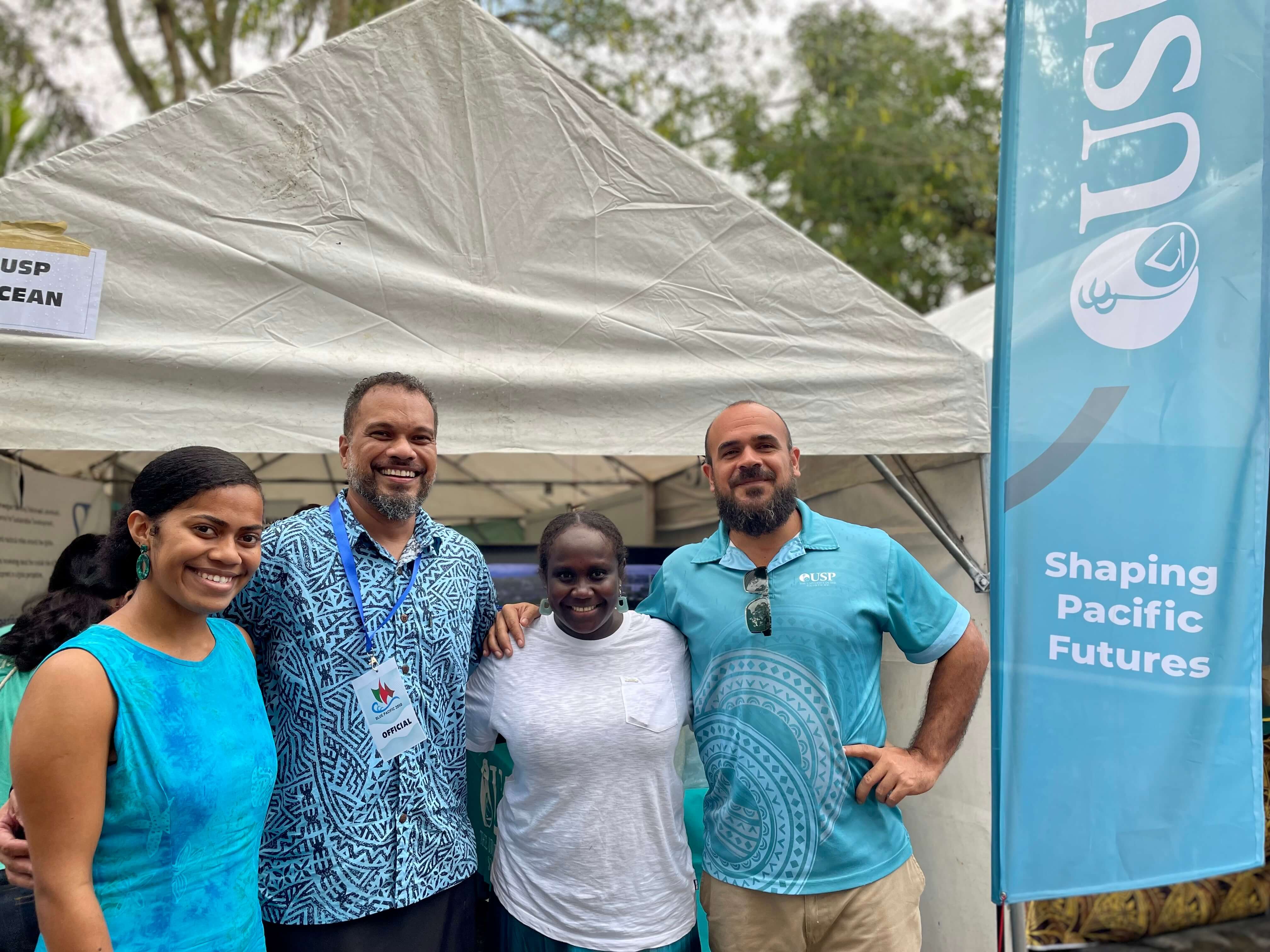Related News

The University of the South Pacific (USP) was one of many participants at the Blue Pacific Village, the largest public-facing event in the programme that was held on the fringes of the Pacific Island Forum Leaders meeting.
The USP delegation focused on several projects that coincided with the themes, the Oceans, Regionalism, and Education.
Furthermore, the Blue Pacific Village was an opportunity to share and promote the vibrance, rich and unique cultures of the eighteen (18) PIF members and celebrate the strength, solidarity and treasure of the diversity of the Pacific.
It was also an opportunity to seek a future in which its cultures, traditions and religious beliefs are valued, honored and developed and reflects the resilience of the Forum members and its people in the last 50 years.
In line with the Day 1 theme of Oceans and Climate at the Pacific Island Leader’s Forum Meeting, Pacific European Union Marine Partnership Programme – Scholarship recipient, Andrew Paris, presented his research on elevated levels of microplastics in coastal environments, including microplastics in fish and seafood.
USP Deputy Vice-Chancellor and Vice-President Regional Campuses and Global Engagement, Dr. Giulio Masasso Pāunga acknowledged the staff and students who were involved for their leadership and collaboration as the 51st Forum Leaders Meeting concluded and marked yesterday by signing and launching of the 2050 Blue Pacific Strategy, as our guide for Pacific development.
Dr Paunga said that everyone agrees that the plan will only be achieved through commitment and working together among Pacific countries in collaboration with our Council of Regional Organisations of the Pacific Agencies and development partners.
He added that he is glad that our collective efforts have already demonstrated that spirit of commitment and togetherness as a USP family.
Dr Paunga also highlighted that USP will do its bit and if our respective institutions and countries do theirs well, only then can our Blue Pacific Region be assured of a successful 2050 Strategy.
Meanwhile, students from the One Ocean Expedition, who study Oceans, Climate Change, and Sustainable Development on board the Stratsraad Lehmkuhl, also presented about the expedition and shared their experiences.
Thirty five students from USP boarded Norway’s largest sailing ship Statsraad Lehmkuhl to be part of the One Ocean Expedition (OOE) across the Pacific Ocean. The Statsraad Lehmkuhl is a floating university and training vessel combined and brought students, scientists, trainees, and professionals together on a leg to Fiji and other Pacific countries.
Timaima Waqainabete was one of thirty students from The University of the South Pacific (USP) who had the unique opportunity to sail, talanoa, dialogue, share experiences, and learn from other students from around the world in the 98-meter-long boat for three weeks.
She said she was grateful to be part of the expedition, a once-in-a-lifetime experience.
Waqainabete said, “I looked forward to the course SDG200 on board Statsraad Lehmkuhl and was excited to learn from other students and discuss my research, especially how our Pacific culture and ways of life entwine with global sustainable goals”.
“It is indeed an essential voyage for me because it contributes and supports my interest in the Bioavailability of Heavy Metals in the oceans with an alarming emergence of Microplastics in the oceans and how this voyage would generate sustainable SDG14 & SDG13 solutions for such interests.” She added.
On Day 2 of the Blue Pacific Village, presentations from USP were done by Salote Nasalo, who is a Master’s candidate at the Pacific Centre for Environment and Sustainable Development (PaCE-SD) and Australia Centre for International Agricultural Research (ACIAR) scholar; and Amitesh Kumar who is the project assistant for the JENESYS Project. They conducted an in depth presentation on Regionalism.
Day 3 of the programme included performances and a presentation by Dr Rosiana Lagi on the Pacific Regional Education Framework (PacREF).